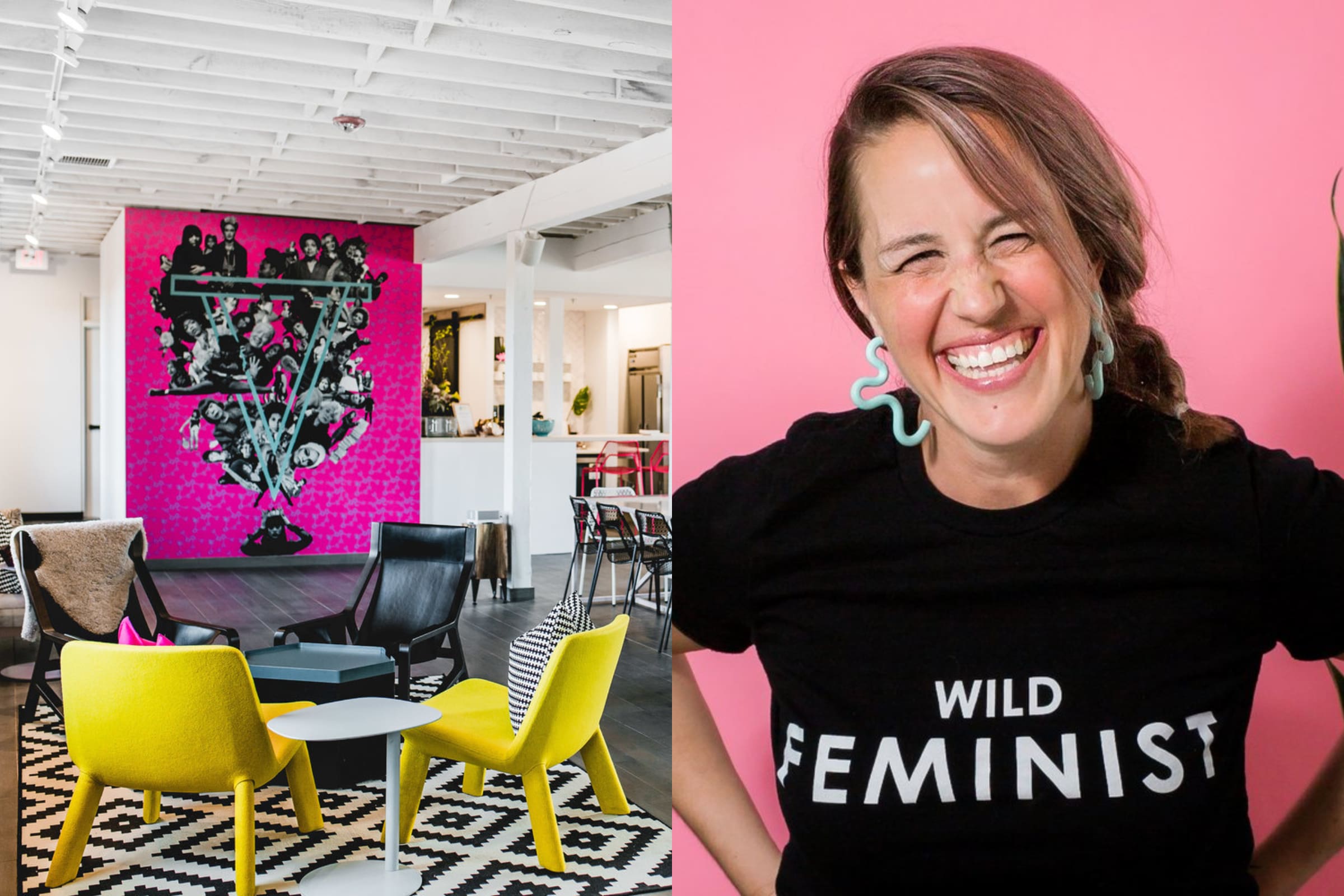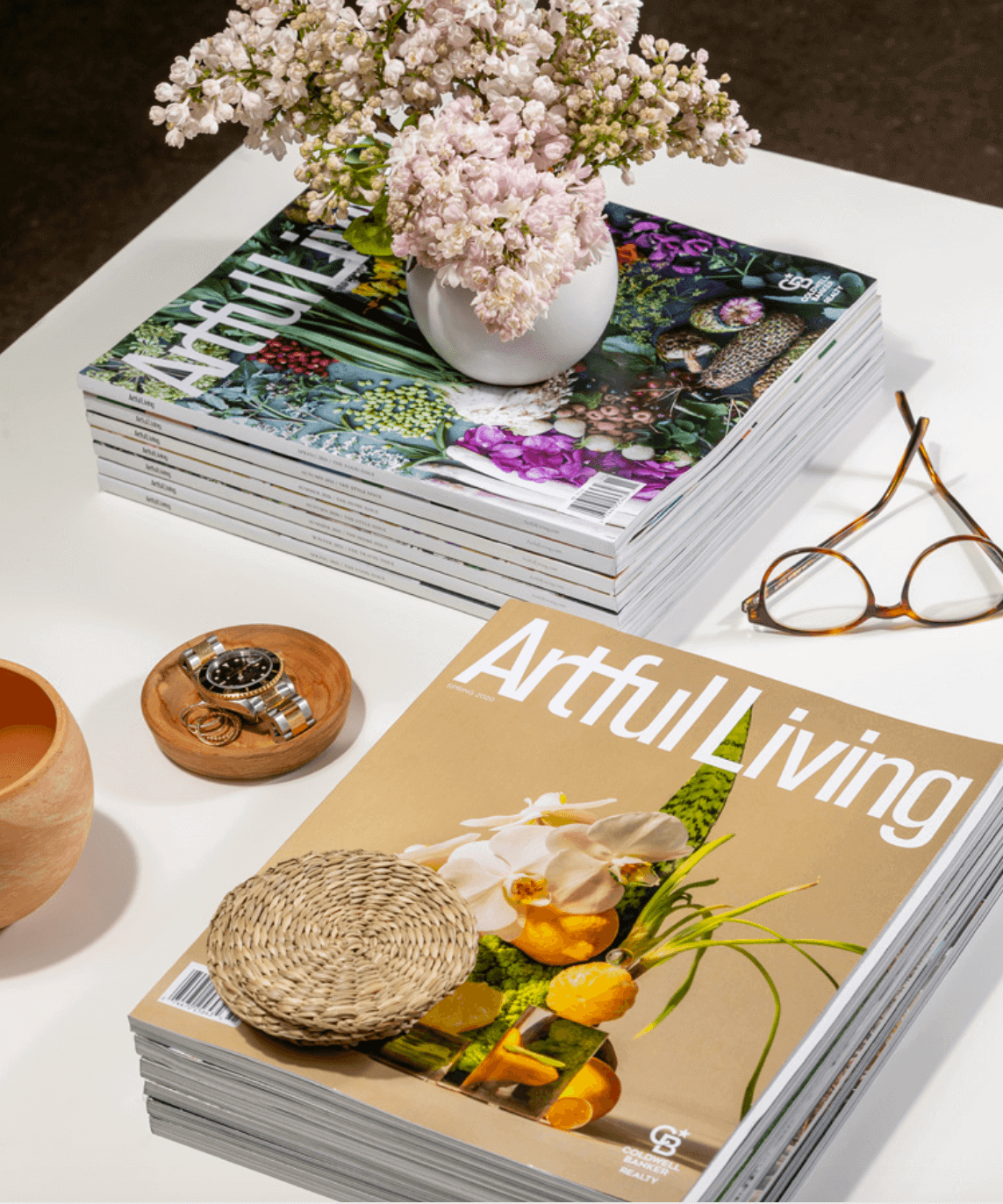The Coven is a collective of women, nonbinary and trans-centered coworking spaces in the Twin Cities where professional and personal lives intertwine. The founders initially bonded over the industry’s failures to create equitable and inclusive workplaces, sharing a commitment to narrowing the gender gap and promoting and supporting women of color into leadership positions. Artful Living spoke with the Coven’s chief design officer, Erinn Farrell, about business, culture and the important support that the design of a space can offer different communities.
Why did you start the Coven?
We had a hunch that women, nonbinary and trans folx may be searching for a space where their professional and personal lives could intermingle, a place where they could perhaps shed the armor they walk through the world with and discover and celebrate their whole selves. We tested this hypothesis with hundreds of interviews and focus groups that we dubbed “witching hours,” calling into conversations folx across the Twin Cities to spend time together and to provide us feedback about our idea. We immediately experienced the magic that happens when womxn come together.
In sharing space with all these folx from differing lived experiences, socioeconomics, industries and generations, we started to notice something incredible: a bias for risk taking where the community began to both inspire and support each individual’s goals and aspirations of growth.
What is the mission of the Coven?
The Coven exists to create physical and psychological safety for our members to explore, connect, grow and build their lives.
How does the design of your space enrich the Coven’s culture?
Although I lead the design of our spaces, as a white woman, I recognized it was essential to not allow my choices and likes to be the only design represented; that narrative is too singular, too specific and, frankly, all too present in spaces already. In executing our design, we collaborated with folx of different races and gender identifications to ensure we acknowledge, honor and celebrate a multitude of lived experiences within our spaces. This commitment is embodied in elements as diverse as the size and scale of our furniture, the art on our walls, the naming of our rooms, the books on our shelves, and the lighting in our spaces. We also made a commitment to hot pink linoleum flooring, which brings a lot of joy to our members.
As the Coven grows, how do you maintain the integrity of the space?
First, I think it’s important to note that the culture we’re helping to build within the Coven is not simply set and projected; that is the difference between a brand and a culture. A brand has a definitive, set perspective and beckons you to join if you want to be like that brand. A culture is made up of the patterns, behaviors and environment that occurs when folx come together. When I describe the design of our space and how it relates to culture, it has been important to acknowledge upfront that we are not building a culture — we’re holding space for cultures, stories and experiences to unfold. A space cannot feel psychologically or physically safe if it is imposed on you, no matter how beautiful, cool or shiny it is.
To that end, we’ve really prioritized spending time in the communities that make up the Twin Cities before we’ve opened our spaces to uniquely design each one of them to reflect the neighborhood they are a part of. We’ve been really aware of holding space for the possibility of what can happen in them versus dictating it — that is the integrity of experience we are trying to build and replicate.
When it comes to the diverse Twin Cities community, how does the Coven play a role?
I think the magic comes in how you define community: Is it just your membership, your neighborhood or your city? We’ve taken the perspective that community is as broad as we want to make it, and that allows us to acknowledge and support folx across the Twin Cities regardless of if they’ll ever become a member of our space. As founders, staff and members, we love the Twin Cities, but we are also driven to hold ourselves and one another accountable to interrogate our necessary growth.
In the weeks following George Floyd’s killing, we’ve broadened our efforts to support community organizing. We’ve used our Minneapolis space to collect food and other donated items for locals affected by protests and police violence, sending nearly 300 carloads into communities.
From the onset, we built our business around a social equity model, ensuring that socioeconomics are never a barrier to participate. Our close ties to community organizing have helped create an inclusive and racially diverse customer base. All of this effort is intended to create a table big enough for everyone to not just reflect a specific sliver of the Twin Cities, but to truly create a space where joyful relationships and growth are abundant.
And with that commitment comes fostering a more inclusive environment.
Membership is open for anyone, and we do have cisgender males as members, but every element of our space is designed with marginalized genders in mind. Everything from our programming, our furniture, the books on our shelves, and how we communicate in digital spaces is designed to accommodate and validate the lived experiences of womxn. As cofounders, our experiences in both corporate and personal settings found us constantly trying to fit into environments that were not built for us. The result is a shrinking of oneself and becoming a version of oneself that is not whole. Although we are open to everyone, we are bullish on building and executing everything we do with the needs of marginalized genders in mind.





